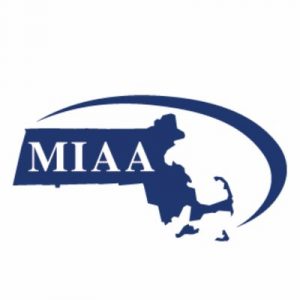
Massachusetts cities, towns consider following Brookline’s tobacco sales ban
Brookline’s ban on tobacco sales to anyone born this century is inspiring other cities and towns across Greater Boston to follow suit, while critics worry about “unintended consequences.”
Residents in Malden will get to weigh in Wednesday on an ordinance that would restrict the sale of tobacco products to anyone born after 2003. The same proposal will be up for debate in Winchester on Thursday.
Local health boards in Wakefield, Stoneham and Melrose approved the ordinance being heard in Malden and Winchester shortly after the state Supreme Judicial Court upheld Brookline’s ban in early March.
Wakefield and Stoneham passed the so-called “Nicotine-Free Generation law” a day apart in late March, with the restrictions set to go into place next January – the same time it will go into effect in Melrose.
Brookline residents approved a bylaw in 2020 that places tobacco consumers into two groups: people born before 2000 are allowed to buy smokes while those born after are not.
Convenience store owners and retailers say tobacco bans could hurt their businesses while advocates and local officials counter that the restrictions put public health at the forefront.
“Three towns might not seem like much, but history raises our optimism,” Action on Smoking & Health wrote after the approval in Wakefield and Stoneham. The national lobbying group, focused on ending the “global tobacco epidemic,” compared the generational law to the state’s ban on smoking indoors.
“We hope, and expect a similar landslide now,” the group wrote. “Several other towns have already held or scheduled hearings on NFG. Expect the third domino in days or weeks, not months.”
MassInsider, an online news blog, has slammed tobacco sale bans for “infringing on the individual liberties of adults and creating two sets of adults going forward.”
That concern sparked several Brookline convenience store owners to take their argument to the SJC that the town’s ban undermined the state Constitution by dividing adults into two age groups and preempted by the Tobacco Act.
But Justice Dalila Argaez Wendlandt found the ban to be consistent with a state law prohibiting tobacco sales to people under the age 21, “rationally related to a legitimate government interest” and in line with the Massachusetts Constitution’s equal protection provisions.
State lawmakers voted in 2018 to block the sale of tobacco products to people younger than 21 years old, raising the minimum age requirement from 18.
The Tobacco Act preempts any “inconsistent, contrary or conflicting” local law related to the minimum age provision but allows cities and towns to limit and to ban the sale of tobacco products within their municipalities, Wendlandt highlighted in her ruling.
Newton City Councilor David Mincley, during a meeting earlier this month, said he feels “conflicted” about approving an ordinance there due to the “unintended consequences.”
“We’ve received many letters from convenience stores and networks of convenience stores that are worried about what it would do to their business model,” Mincley said, “and whether it makes it attractive to open up businesses in Newton which is an issue.”
“Right now, our tax base is primarily residential,” he added. “We need a more commercial tax base. This just makes it that much harder.”


